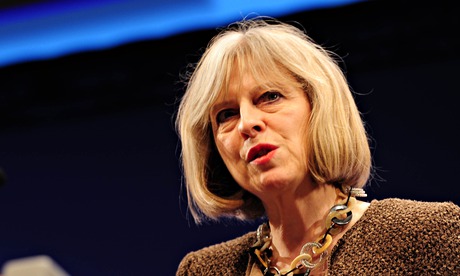Welcome
....to JusticeGhana Group

JusticeGhana is a Non-Governmental [and-not-for- profit] Organization (NGO) with a strong belief in Justice, Security and Progress....” More Details
The Lords must vote against May's plan to strip Britons of their citizenship
- Details
- Category: Law Commentaries
- Created on Tuesday, 25 March 2014 00:00
- Hits: 3194
 The Lords must vote against May's plan to strip Britons of their citizenship
The Lords must vote against May's plan to strip Britons of their citizenship
The home secretary's amendment could allow the citizenship of millions to be removed, with slim chance of appealing
Clare Algar
"[U]se of denationalisation as a punishment [means] the total destruction of the individual's status in organised society. It is a form of punishment more primitive than torture …"
So ruled the US supreme court in 1958 on the practice of stripping people of their citizenship and leaving them stateless. It is a measure of how far Britain has sunk in the legal and ethical mire of the "war on terror" that the government is now attempting to introduce powers similar to those rejected by the US courts as "cruel and unusual" more than half a century ago.
On Monday, the House of Lords votes on plans that would give Theresa May the power to strip Britons of their citizenship without due process, even if doing so would leave them stateless – deprived of any nationality or the protections it carries.
It is a power that, before this government came into office, had been relatively narrow in scope and little-used. Even during the second world war, Oxford academic Matthew Gibeny notes, "only four people were stripped of citizenship." Already, he says, "Theresa May has denaturalised more than four times that number".
But now it appears the home secretary wants to go still further. The measures she is pushing would massively expand the number of Britons vulnerable to being stripped of their citizenship to an estimated three or four million people. This is the approximate number of people who hold a British passport but were not born in the UK. If May gets her way she will be able to deprive them of their citizenship, regardless of whether or not they hold any other nationality or have committed any crime.
While the government says it only intends to use the powers on a limited basis, the lack of proper checks or due process should be a major cause for concern. No court process whatsoever is required before the home secretary can remove someone's citizenship. The person in question need not have been charged or tried with any crime at all, let alone convicted. The only test is that May thinks that to take the step would be "conducive to the public good" because the person has conducted themselves "in a manner which is seriously prejudicial to the vital interests of the United Kingdom."
No definition is provided for such conduct, and so what is there to stop this broad term from encompassing those who, for example, seek to split up the UK, block the renewal of Trident, or take Britain out of the EU? You may agree or disagree with any of those as political views, but surely their proponents should not be eligible under law for the loss of their nationality, simply because the government of the day judges their aims to be at odds with UK interests.
Ministers would doubtless respond that they have no intention of rounding up such groups under this legislation. But laws outlast governments, and we cannot afford to be complacent about the benevolence of any future regime when considering whether to allow our political masters unchecked powers such as these.
It is worth remembering also that governments and their officials are not infallible. In the event that the information which has led to a decision to remove someone's citizenship is wrong, there is no way to challenge or rectify this. Those who lose their citizenship under these powers will be afforded no chance to challenge the decision beforehand. After the axe has fallen they will theoretically be able to appeal, but only via a highly secretive process which can prevent them from ever seeing the evidence that is being used against them.
In short, you will be told that you have done something against the interests of the UK. When you ask what you are supposed to have done, in order that you can give your side of the story, the government will say they cannot tell you for reasons of national security.
It is therefore surprising that, when this sweeping, ill-thought-out measure was brought forward, it was on the whole meekly accepted by the Commons, being opposed by just 34 MPs. This may have been in part down to the shameful way that May announced it – believed to be a sop to hardliners on her own backbenches – at the last minute, thereby minimising informed consideration.
But the Lords will have no such excuse for exposing millions of Britons to this "punishment more primitive than torture". May's dangerous amendment must itself be stripped out of the bill.
Source: The Guardian UK




